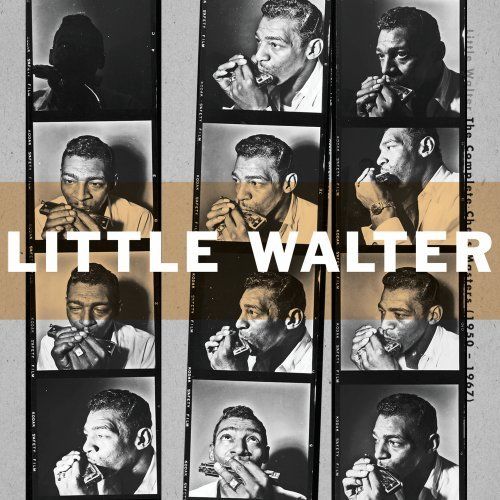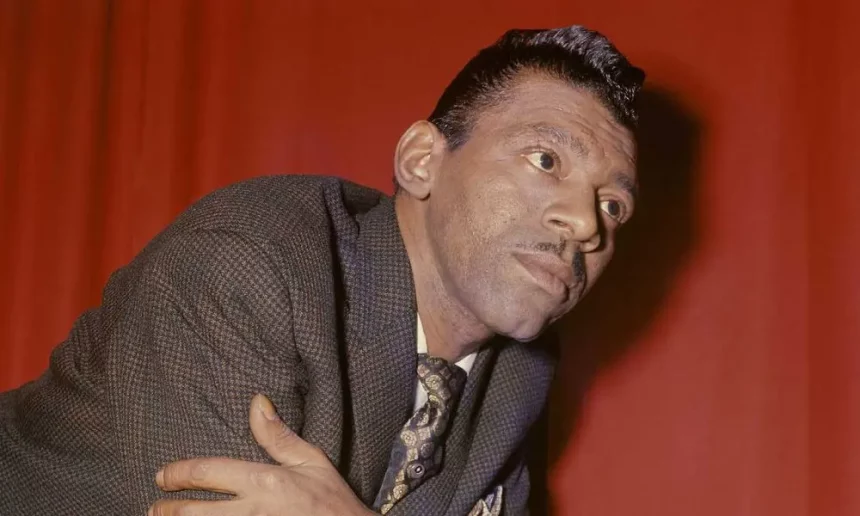at 1Yingshi Marion Walter Jacobs was born in May 1930 in Deep Louisiana.Thus began the chaotic journey of the boy who went on to become a musical visionary known as little walter.

Walter grew up in Rapids Parish, Louisiana, where he taught himself to play the harmonica. At 12, he dropped out of school and left rural Louisiana to travel, working odd jobs along the way and busking across the United States.
The young blues student honed her harmonica and guitar skills by performing with her elders. Bluesmen including Sonny Boy Williamson II, Sunnyland Slim, and Honeyboy Edwards helped Walter improve before he left for Chicago in 1945.
After arriving in the Windy City, Walter found odd jobs as a guitarist with Chicago blues players such as Floyd Jones, but it was his impressive advanced harmonica playing that attracted attention.
Walter is well on his way to becoming a full-fledged musician and will soon be making some big changes to the way he plays the harmonica.
Tired of the electric guitar blocking the sound of the harmonica, Walter started holding a small microphone in his hand along with the harmonica, and plugged the mic into a guitar amp. This strategy helps him compete with the resonance of the guitar.
While this technique has been used by other harmonica players, Walter took it a step further. Unlike his harp-playing counterparts, he set out to push amplifiers to their extremes—using them far beyond the intended technical limits, allowing him to explore innovative tones and effects.
Walter was the first musician to use electronic distortion, and he quickly became one of the most visible figures in the Chicago blues.
Walter joined Muddy Waters’ band in 1948, and by 1950 he was playing acoustic harmonica on Mud’s recordings for Chess Records. The first recording of Walter’s amplified harmonica was Waters’ “Country Boy” in 1951.
Although Chess left Waters’ band in ’52, he continued to hire Walter to play harp on Waters’ studio repertoire. As a result, Waters appears on most of Waters’ classic recordings of the 1950s.
In addition to playing the harmonica, Walter also played guitar during some of Waters’ and Jimmy Rogers’ early chess lessons. He also played with Memphis Minnie, Johnny Hines, Floyd Jones, Beau Diddley, Otis Rush, Johnny Young and Robert Nighthawk, among others.
After many years as an accompanist, Walter stepped into the spotlight and in 1952 became the bandleader of Checker Records, a Chess subsidiary.The debut version of his first song, “Juke,” recorded on his debut recording, became his debut hit, staying at number one on the charts for eight weeks billboard R&B charts.
the song is still only harmonica instrument used to be number one billboard. “Juke” is by far the most successful track of any artist on the Chess label. Walter had 14 top ten singles from the album. billboard R&B chart hits from ’52 to ’58, including two No. 1 hits, followed by 1955’s “My Babe.”
Walter’s sound was ahead of its time, faster than other Chicago blues sounds of the time. As a harmonica player, he was more rhythmically free and far less vocal than most blues harpists of his era. Walter Jr. rose to the top, but his musical success didn’t save him.
Despite his success, Walter was an alcoholic who lived a life of extremes. Known for being hot-headed and short-tempered, Walter often got into fights. He had been beaten numerous times throughout his life, leaving his face and body bruised and bruised. Walter’s constant push of his body to its limits culminated in his untimely death at the age of 37.
On February 15, 1968, the blues’ greatest harmonica player died in his sleep following a bar fight on Chicago’s South Side. The exact circumstances of his death remain a mystery.
While some claim his death was the result of a blow to the head by the brother of one of Walter’s many female companions, others dispute this, saying he was hit on the head with a pipe for bad gambling debts.
Walter’s cause of death was a coronary thrombosis, according to the official death certificate. The trauma he sustained was so minor that police reported the cause as “unknown or natural cause”. It is said that the attacker in Walter’s final fight may have exacerbated the injuries he suffered in the previous altercation, resulting in his death.
Walter’s longtime musical partner, Muddy Waters, was not surprised by the news of his friend’s death, saying “Jr. Walter passed away ten years before he died.”
The wild blues bad boy is buried at St. Mary’s Cemetery in Evergreen Park, Illinois. His grave remained unmarked until 1991, when two fans designed a marker and installed it.
It’s a tragic and extremely unremarkable end to a life full of chaos and color, and one that brought so much innovation to the harmonica world.
Little Walter was one of the first inductees into the Blues Hall of Fame in 1980. He was inducted into the Rock and Roll Hall of Fame in 2008 and received a Grammy® Hall of Fame Award for “Juke”.









